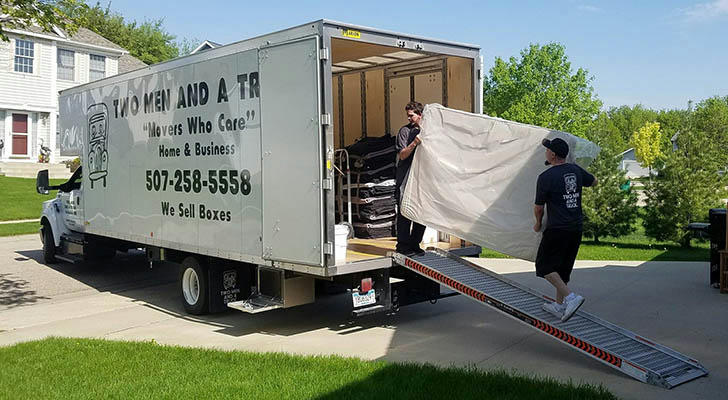How to Plan a Moving Budget? Money-Saving Tips and Hidden Costs
Moving to a new home can be exciting but also a bit overwhelming. One of the most important things to manage is your budget. Planning a moving budget helps you keep track of expenses and avoid unexpected costs. Moving can get expensive quickly, but with some smart planning, you can save money. In this article, we’ll look at what goes into a moving budget, common hidden costs, and practical tips to help you save money during your move.

Main Parts of a Moving Budget
To create a moving budget, it’s important to know what expenses to expect. Here are the main parts you should consider:
1.Moving Company Fees
Moving companies usually charge based on how far you’re moving, how much stuff you have, and how long the move takes. For short moves, they might charge by the hour, while long-distance moves often have a flat fee. Always ask for a clear estimate that breaks down these costs.
2.Packing Materials
Packing materials can add up quickly. You’ll need boxes, bubble wrap, tape, and packing paper to protect your belongings. Some moving companies include these in their services, while others charge extra. To save money, consider getting second-hand boxes or using materials you already have.
3.Transportation Costs
Besides the moving company’s fees, you should also think about transportation costs. This includes gas, tolls, and parking fees. These costs can vary based on how far you’re moving, so include them in your budget.
4.Labor Costs
Labor costs refer to how much you pay for the movers’ time. This includes their hourly wages and any extra fees if they have to do more work, like taking apart furniture.
5.Insurance Costs
Insurance protects your belongings while they’re being moved. Most moving companies offer basic coverage, but this might not be enough for valuable items. Consider getting extra insurance for peace of mind, even if it costs more.
6.Temporary Storage Costs
If your new home isn’t ready yet, you may need to store your things temporarily. Many moving companies provide storage services, but this can add to your total costs, especially if you need storage for a long time.
Money-Saving Tips
Now that you know the main expenses, here are some tips to help you save money while moving:
1.Book the Moving Company Early
Booking your moving company in advance can save you money. Prices often go up during busy times, like weekends and the end of the month. If you can, try to schedule your move during off-peak times.
2.Compare Quotes
Don’t just choose the first moving company you find. Get quotes from several companies to see who offers the best deal. Make sure to ask for a detailed breakdown of costs to compare them easily.
3.Pack Your Own Things
Hiring movers to pack for you can be convenient, but it can also be expensive. Save money by packing your own belongings. Start early, gather materials, and label everything. This can also make unpacking easier later.
4.Declutter Before You Move
Moving is a great chance to get rid of things you no longer need. The less you have to move, the cheaper it will be, since many movers charge based on weight or volume. Donate, sell, or recycle things you don’t want anymore.
5.Move During Off-Peak Times
If you can choose your moving date, try to avoid weekends, month-ends, or holidays. Movers are often less busy during these times and may offer discounts.
6.Do Some Moving Tasks Yourself
If possible, handle some of the moving tasks on your own. You can transport smaller items in your own car, which can save you on labor costs.
Common Hidden Costs
While planning your budget, keep an eye out for these common hidden costs that might surprise you:
1.Long-Distance Hauling Fees
If the moving truck can’t park close to your new home, movers might charge extra for carrying your things a longer distance.
2.Fees for Large Items
Moving heavy or bulky items, like pianos or refrigerators, can lead to extra fees due to the specialized equipment and extra help needed.
3.Overtime Charges
If the move takes longer than expected, you may have to pay extra for the additional time.
4.Stairs or No-Elevator Fees
If you’re moving to a high-rise building or a place without an elevator, expect to pay more because movers will have to work harder to carry your items up the stairs.
5.Temporary Storage Fees
If there’s a delay in getting into your new home, you might have to pay for storing your belongings, which can add up quickly.
6.Extra Insurance Costs
Basic insurance might not cover everything, especially valuable items. You may need to pay for additional coverage to protect your belongings.
Conclusion
Creating a moving budget is crucial for a smooth transition to your new home. By understanding the different costs involved and following money-saving tips, such as booking early, packing yourself, and decluttering, you can significantly reduce your moving expenses. Being aware of potential hidden costs will help you avoid surprises and stay within your budget. With a little planning, you can make your move easier, more affordable, and less stressful.
